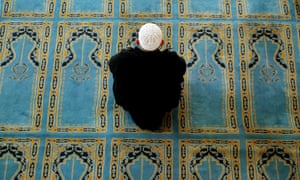As a regular reader of Cricinfo I started this Easter Monday holiday by reading 'Why Ramiz gets Bangladesh's goat' Jarrod Kimber's sensitive enquiry into why Bangladesh cricket fans react so vehemently to cricket commentator Ramiz Raja. Lack of quality among commentators and highly emotional responses by social media users were the conclusions drawn by Kimber. As was habitual for me I then went on to Youtube where the channel recommended that I watch a post match analysis on the India Australia WT20 cricket match played yesterday at Mohali. I clicked on the suggestion and found that it was a Pakistani TV channel show discussing the match with Brian Lara, Rashid Latif, Saqlain Mushtaq and Glenn McGrath as experts.
---Also by this writer
Sreesanth - Another Modern Day Valmiki?
On Walking - Advice for a fifteen year old
----
In the programme Rashid Latif advanced a thesis that Dhoni and Yuvraj collaborated to deceive the umpire Erasmus into giving Steve Smith the Australian captain out caught behind. Rashid admitted that he indulged in similar behaviour in his playing days and recalled an instance in Sharjah when he conspired with Mushtaq Ahmed to get Dravid out in a similar fashion. Glenn McGrath then stated a fact that that the stump microphone had not detected an edge in the Smith dismissal.
Rashid Latif then commented on how a carefully cultivated image enables a cricketer to trick an umpire into giving them the benefit of doubt which enables them to get an unfair advantage in tight situations. He spoke about Gilchrist's carefully built reputation as a walker and how it helped players like him with umpires in situations when the evidence was not clear cut.
From this discussion I realised that in such a situation not using technology gives the benefitting team an unfair advantage. After all the decision to give Smith out (if he was not out?) had a game changing impact on the match with Smith being Australia's in-form batsman. At the same time I'm sure many Indian cricketers will readily admit the number of times they have been at the receiving end of bad decisions because of BCCI's refusal to use technology to help adjudicate umpiring decisions.
However, I was more worried by the specious logic used by the commentator Rashid Latif to insinuate that Dhoni and Yuvraj cheated like he used to in his playing days. Latif's false argument in the world of logic is called 'Shifting the burden of proof'. It consists of putting forward an assertion without justification, on the basis that the audience must disprove it if it is to be rejected.
Madsen Pirie in his book 'How to win every argument' gives another example to help you understand Latif's false logic:
I believe that a secret company of Illuminati has clandestinely directed world events for several hundred years. Prove to me that it isn't so.
Shifting the burden, Pirie writes, is a common fallacy on which rests the world of conspiracy theories, UFOs, monsters, Gods etc. Advocates like Latif make us the viewer accept the burden of proving that his statement is false. As a viewer I would find it difficult if not impossible to disprove his insinuation.
Also, by shifting the onus of proof Latif is able to put forward mischievous views without producing any shred of evidence. This is dishonesty.
Of course the whole programme appeared to have an anti India bias (not surprising) underpinned by the conspiracy theory that events, grounds, pitches and umpires are all collaborating to ensure that India would win the WT20 cup.
I too felt like Kimber's Bangladesh supporters and realised that the only way India can resolve this shifted burden of proof is by not winning the trophy.
The writer plays for CamKerala CC in the Cambs cricket league.
